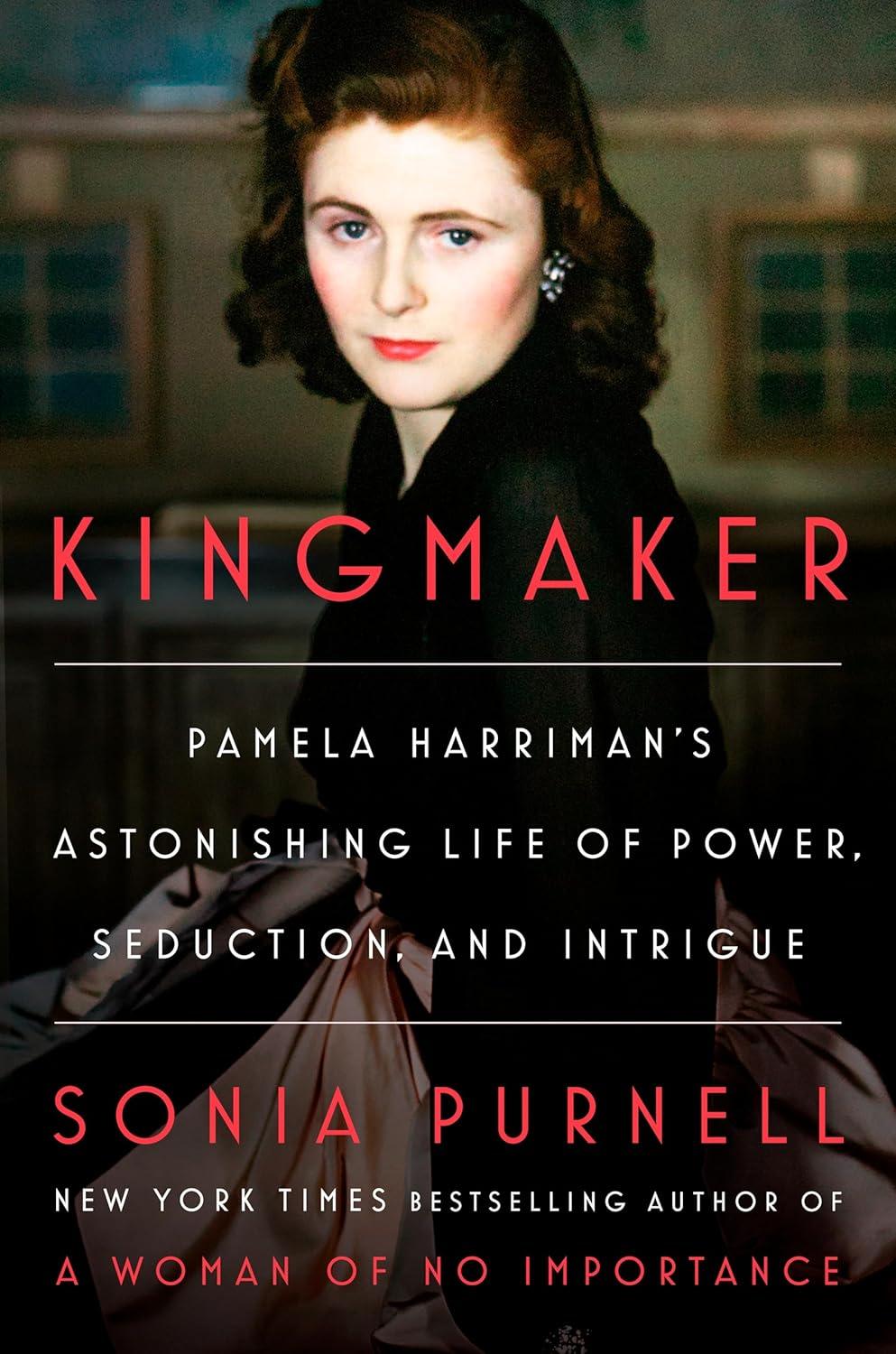Sonia Purnell’s new biography, “Kingmaker: Pamela Harriman’s Astonishing Life of Power, Seduction, and Intrigue” (Viking), is a bit of a feminist reclamation project, bent on producing a more respectful portrait than those found in two earlier books, Christopher Ogden’s “Life of the Party: The Biography of Pamela Digby Churchill Hayward Harriman” (1994) and Sally Bedell Smith’s “Reflected Glory: The Life of Pamela Churchill Harriman” (1996). It’s time to set to rights, Purnell believes, Harriman’s reputation as, what she calls, a “conniving and ridiculous gold digger obsessed by sex.” I wasn’t entirely convinced that such a rescue operation was necessary. It’s true that the earlier books were meaner than Purnell’s, flecked with nineties snark and anonymous quotes. (Ogden’s was the product of an authorized-biography agreement gone sour.) And Harriman was certainly subject to gossip, some of it scurrilous and sexist. A nasty takedown in The New Republic by the glib British expat Henry Fairlie, published in 1988 under the headline “Shamela,” dubbed her a Washington widow of “vivid repute . . . her name inflated with each husband.” When Bill Clinton nominated Harriman to be the Ambassador to France, Senator Strom Thurmond felt it appropriate to declare, “They’re sending the Whore of Babylon to Paris!” (That would be the irredeemably segregationist senator from South Carolina, who had a string of sexual-harassment allegations to his name and a long-unacknowledged daughter by a Black teen-ager whose mother worked for his parents.)
As Purnell herself amply documents, however, Harriman’s political savvy and clout weren’t exactly overlooked in her lifetime. Clinton, whose Presidential promise Harriman recognized and championed early on, called her “the First Lady of the Democratic Party.” When the Gorbachevs made a trip to Washington, in 1987, they sought her out. Nelson Mandela made a point of visiting her Georgetown home, in 1993, to tap her counsel on getting voters to the polls. When “Shamela” hit the stands, Purnell says, half the Senate signed a letter condemning the article (more than a few of the senators had been beneficiaries of her fund-raising largesse), adding that Harriman, “a woman of extraordinary wealth and ability,” could have chosen a life of “idleness and self-indulgence” but, instead, had chosen one of “public service.”
